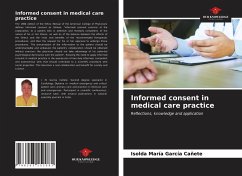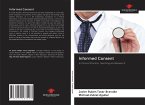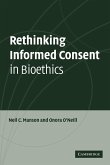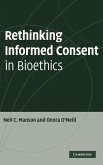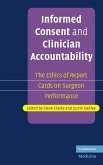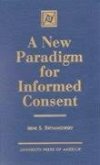The 1984 edition of the Ethics Manual of the American College of Physicians defines informed consent as follows: "Informed consent consists of the explanation, to a patient who is attentive and mentally competent, of the nature of his or her illness, as well as of the balance between the effects of the illness and the risks and benefits of the recommended therapeutic procedures, and then the request for his or her approval to undergo those procedures. The presentation of the information to the patient should be understandable and unbiased, the patient's collaboration should be obtained without coercion; the physician should not take advantage of his potential psychological dominance over the patient". Knowing the need to apply informed consent in medical practice is the expression of two duly informed, competent and autonomous wills that should contribute to a scientific procedure with social projection. This becomes a real collaboration and benefit for society and science.
Hinweis: Dieser Artikel kann nur an eine deutsche Lieferadresse ausgeliefert werden.
Hinweis: Dieser Artikel kann nur an eine deutsche Lieferadresse ausgeliefert werden.

